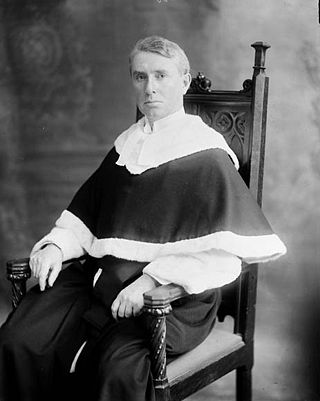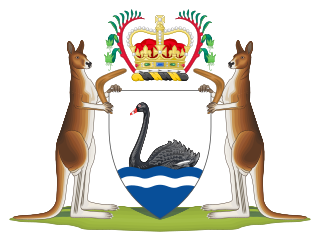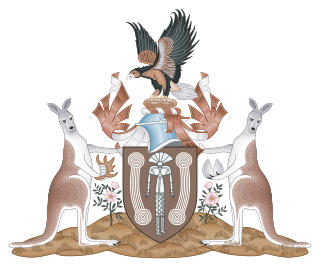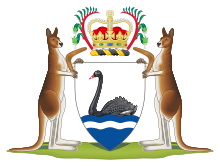
A justice of the peace (JP) is a judicial officer of a lower or puisne court, elected or appointed by means of a commission to keep the peace. In past centuries the term commissioner of the peace was often used with the same meaning. Depending on the jurisdiction, such justices dispense summary justice or merely deal with local administrative applications in common law jurisdictions. Justices of the peace are appointed or elected from the citizens of the jurisdiction in which they serve, and are usually not required to have any formal legal education in order to qualify for the office. Some jurisdictions have varying forms of training for JPs.

The term magistrate is used in a variety of systems of governments and laws to refer to a civilian officer who administers the law. In ancient Rome, a magistratus was one of the highest ranking government officers, and possessed both judicial and executive powers. In other parts of the world, such as China, magistrate is a word applied to a person responsible for administration over a particular geographic area. Today, in some jurisdictions, a magistrate is a judicial officer who hears cases in a lower court, and typically deals with more minor or preliminary matters. In other jurisdictions, magistrates are typically trained volunteers appointed to deal with criminal and civil matters in their local areas.

District courts are a category of courts which exists in several nations, some call them "small case court" usually as the lowest level of the hierarchy. These include:
A resident magistrate is a title for magistrates used in certain parts of the world, that were, or are, governed by the British. Sometimes abbreviated as RM, it refers to suitably qualified personnel—notably well versed in the law—brought into an area from outside as the local magistrate, typically to be the guiding hand amongst other lay magistrates.
The judiciary of Australia comprises judges who sit in federal courts and courts of the States and Territories of Australia. The High Court of Australia sits at the apex of the Australian court hierarchy as the ultimate court of appeal on matters of both federal and State law.

The Magistrates' Court of Victoria is the lowest court in the Australian state of Victoria.

The Supreme Court of Western Australia is the highest state court in the Australian State of Western Australia. It has unlimited jurisdiction within the state in civil matters, and hears the most serious criminal matters.

The Supreme Court of the Northern Territory is the superior court for the Australian Territory of the Northern Territory. It has unlimited jurisdiction within the territory in civil matters, and hears the most serious criminal matters. It is around the middle of the Australian court hierarchy.

The Supreme Court of the Australian Capital Territory is the highest court of the Australian Capital Territory (ACT). It has unlimited jurisdiction within the territory in civil matters and hears the most serious criminal matters.

The District Court of New South Wales is the intermediate court in the judicial hierarchy of the Australian state of New South Wales. It is a trial court and has an appellate jurisdiction. In addition, the Judges of the Court preside over a range of tribunals. In its criminal jurisdiction, the Court may deal with all serious criminal offences except murder, treason and piracy. The Court's civil jurisdiction is generally limited to claims less than A$1,250,000.

The District Court of Western Australia is the intermediate court in Western Australia. The District Court commenced in 1970, amid additional stress placed on the existing Magistrates Court and Supreme Court due to the increasing population of Western Australia. At its inception, the Court consisted of four judges: Sydney Howard Good, William Page Pidgeon, Desmond Charles Heenan and Robert Edmond Jones.
The Norfolk Island Court of Petty Sessions was created by the Court of Petty Sessions Act 1960, and is the equivalent of most Australian mainland Magistrates' Courts or Local Courts.

The Magistrates Court of South Australia is the lowest level court in the state of South Australia. The Magistrates Court, then known as the Court of Petty Sessions, was established in 1837, by the Court of Sessions Act 1837. It has both original and appellate jurisdiction and hears matters specified in the Magistrates Court Act 1991 (SA).
The District Court is the main court of summary jurisdiction in Ireland. It has responsibility for hearing minor criminal matters, small civil claims, liquor licensing, and certain family law applications. It is also responsible for indicting the accused and sending them forward for trial at the Circuit Court and Central Criminal Court.
The Coroner's Court of Western Australia is a court which has exclusive jurisdiction over the remains of a person and the power to make findings in respect of the cause of death of a person in Western Australia.
The Coroners Court of Tasmania is the generic name given to the Coronial Division of the Magistrates Court of Tasmania. It is a court which has exclusive jurisdiction over the remains of a person and the power to make findings in respect of the cause of death of a person, a fire or an explosion in Tasmania.
The Court of Summary Jurisdiction is a court in the Northern Territory of Australia. It has jurisdiction to deal with criminal offences which occur in the territory. It is one of the courts that is usually referred to as a magistrates court.

The Magistrates Court of the Australian Capital Territory is a court of summary jurisdiction that deals with the majority of criminal law matters and the majority of small civil law matters in the Australian Capital Territory, the Jervis Bay Territory and the Australian Antarctic Territory.
The Children's Court of Victoria is a statutory court created in Victoria, Australia. The court deals with criminal offences alleged to be committed by children aged between 10 and 17 and with proceedings concerning children under the age of 17 relating to the care and protection of children.

The judiciary of Jamaica is based on the judiciary of the United Kingdom. The courts are organized at four levels, with additional provision for appeal to the Judicial Committee of the Privy Council in London. The Court of Appeal is the highest appellate court. The Supreme Court has unlimited jurisdiction in all cases, and sits as the Circuit Court to try criminal cases. The Parish Court in each parish hears both criminal and civil cases, excluding grave offences. The Petty Sessions are held under Justices of the Peace, with power to hear minor crimes.












